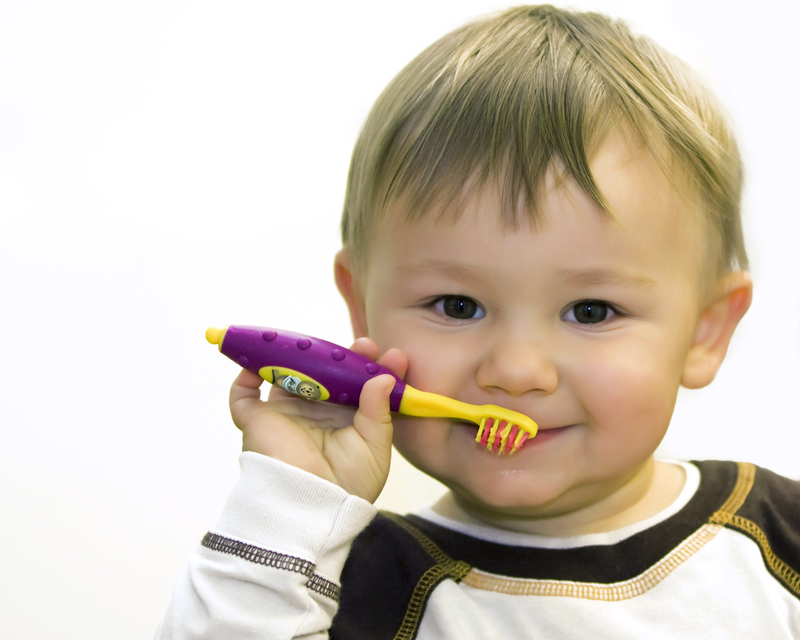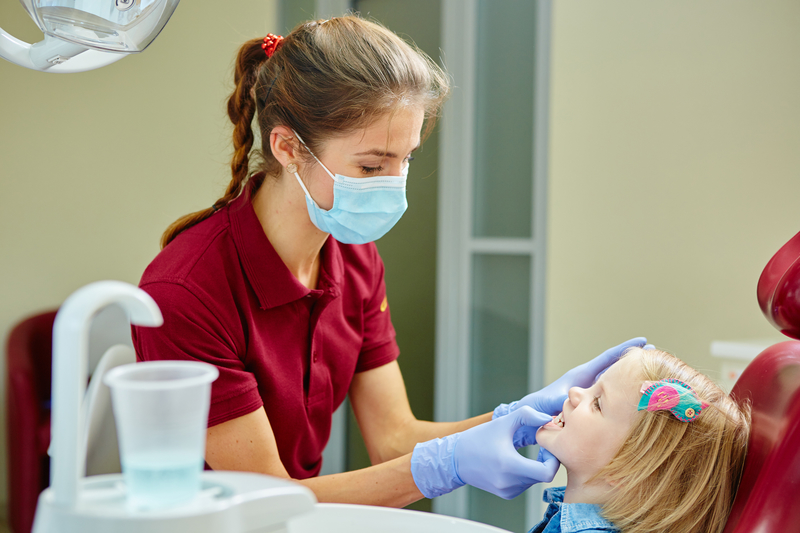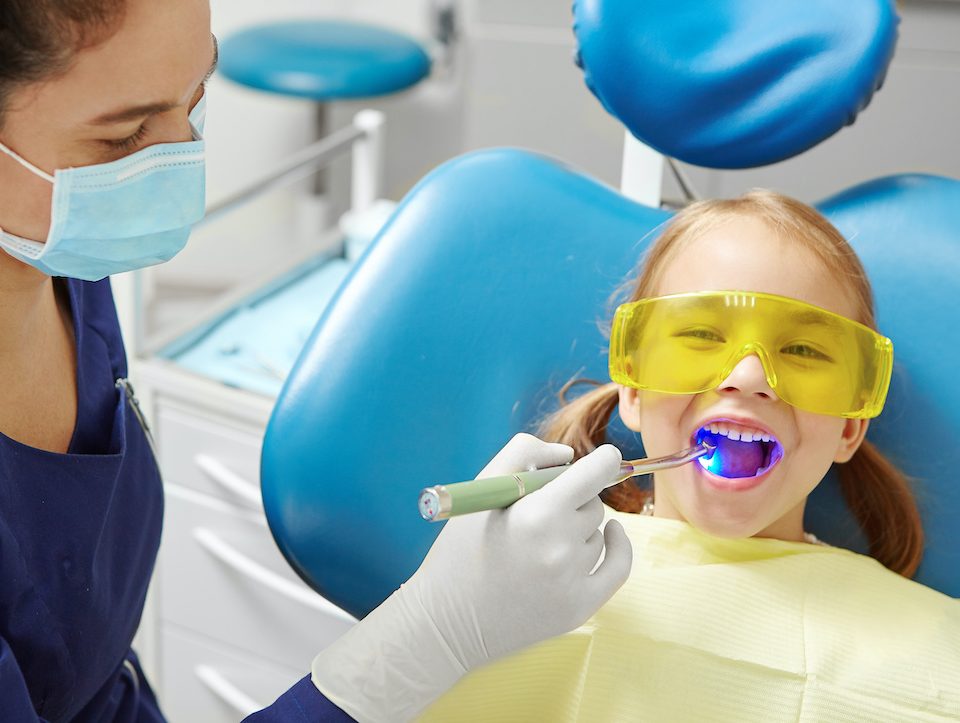Infant Oral Care: Is it Really Important?
When to Schedule Your Child’s First Dental Visit
January 31, 2019Teeth Wreckers – Avoid the Onslaught!
February 5, 2019Infant Oral Care: Is it Really Important?
Did you know that the AAPD (American Academy of Pediatric Dentistry) recommends that you schedule your child’s first oral hygiene appointment when they reach their 1st birthday? Why so soon? Prevention! The best way to treat decay is to prevent it from occurring in the first place. Dental problems can occur early from baby bottle decay or nursing. Approximately half of all children between the ages of 2 and 3 have at least mild gum tissue inflammation as well. Educate yourself on infant oral care tips to help prevent many common problems!
Infant Oral Care and Baby Teeth
Did you know that your child will have a different number of teeth than you have? Children will only have 20 baby teeth even though adults have 32 teeth. These teeth will be smaller and will have spaces between them. Infants get their teeth starting around 6 months to 1 year in most patients. It can take up to 3 years for all the baby teeth to come in. Children will have these baby teeth until around 7 or 8, where they generally lose their first tooth. Those spaces in between the baby teeth make it so there will be room for the adult teeth to grow in eventually. Although baby teeth will fall out, infants and children will have these teeth for years. Those delicate teeth will decay fast if proper infant oral care practices are not followed.
Tooth Decay in Children
The National Institute of Dental and Craniofacial Research reports that tooth decay is the most prevalent chronic disease in children and adults. Children get this decay from not brushing and flossing their teeth enough, and from consuming too many sugary foods. 42% of children between 2 and 11 have tooth decay from sugar and 23% of them have untreated cavities.
Decaying teeth will affect your child’s health and their speech. If you let decay grow, it can spread to other teeth. Even though the baby teeth are small, this can lead to lost teeth, infections, problems with the adult teeth coming in, and more. You can protect your child’s teeth with infant oral care practices such as:
- Fluoride treatments. Fluoride is a mineral that strengthens teeth and helps them be resistant to decay.
- Brushing and flossing. Children should do this at least twice a day (if not after every meal) to avoid cavities.
- Dental sealants. You can protect delicate baby teeth with a plastic tooth coating known as a “dental sealant”. This will reduce tooth decay in children significantly.
- Make good food choices. Limit the sugar and teach children to love foods that are healthy, thus reducing their risk for cavities and future health problems.
Other Oral Health Issues
There are various other issues you should be aware of when it comes to infant oral care. Many patients have babies that struggle with nursing. This could be because your infant’s lip or tongue is attached, making it hard to nurse or take a bottle properly. This could cause your baby to lose weight instead of gaining it and could cause your baby to seem colicky. Examine your infant’s lips and tongue. Does the lip seem to be attached to your child’s gum line on either the top or the bottom? Does the tongue seem to be attached too much?
You want to watch for these attachments, as they can cause your baby problems with feedings and with how their teeth and gums develop. Infants with attachments may grow to have a gap between their two front teeth. These attachments can lead to speech impediments and problems with crooked teeth. An infant frenectomy can help. This is where we remove the attachment to the lip or tongue that is preventing your infant from eating well. If you’re unsure about an attachment, come into our office to have your child evaluated.
Preventing Baby Bottle Tooth Decay
Infants with teeth often find themselves with tooth decay because of the milk they are drinking. Milk (especially breast milk) has sugars in it. Infants have tooth decay because their delicate teeth have been exposed to these sugars for prolonged periods of time. This generally happens if you put your baby to bed with a bottle that they can suck on all night long.
When a baby has a tooth, it’s important to prevent decay from milk. The ADA recommends infant oral care guidelines such as:
- Don’t ever put a baby to bed with a bottle.
- Don’t use a bottle as a type of pacifier for the baby when they’re fussy.
- Always use a clean pacifier. Never dip it in sugar or honey.
- Don’t lick pacifiers or anything that will go in baby’s mouth. This can spread decay-causing bacteria to their mouth.
- Don’t fill bottles with sugar water, soft drinks or juice.
- Make sure to always brush your baby’s first tooth gently with a baby toothbrush and a pea-size amount of toothpaste. Do this until age 3.
- Clean a child’s gums after feedings with a damp washcloth.
- Be vigilant with infant oral care for several years until they can brush their teeth on their own. Always monitor their brushing, even when they’re older.
Infant Oral Care Is a Must
You want your child to have everything, and good oral health is no exception. In order to achieve this, you must practice excellent infant oral care when you baby is young. Many parents don’t know much about infant oral care as they are starting off with a new baby. We can help you know how to care for your child’s teeth as well as your own. To learn more, call our Mountain Aire Dentistry office today at (303) 731-7755!
When you visit our Broomfield dental office, your smile is our top priority. Our Dentists invite you to experience the difference a warm and caring team can provide for you and your family. Enjoy a unique and comfortable dental experience designed to bring a healthier and happier smile back into your life. We invite you to call or visit our Broomfield dental office and discover the exceptional difference we offer to those we serve.














